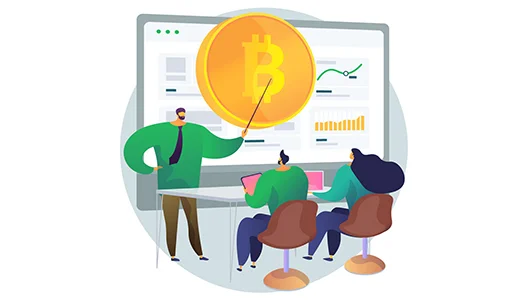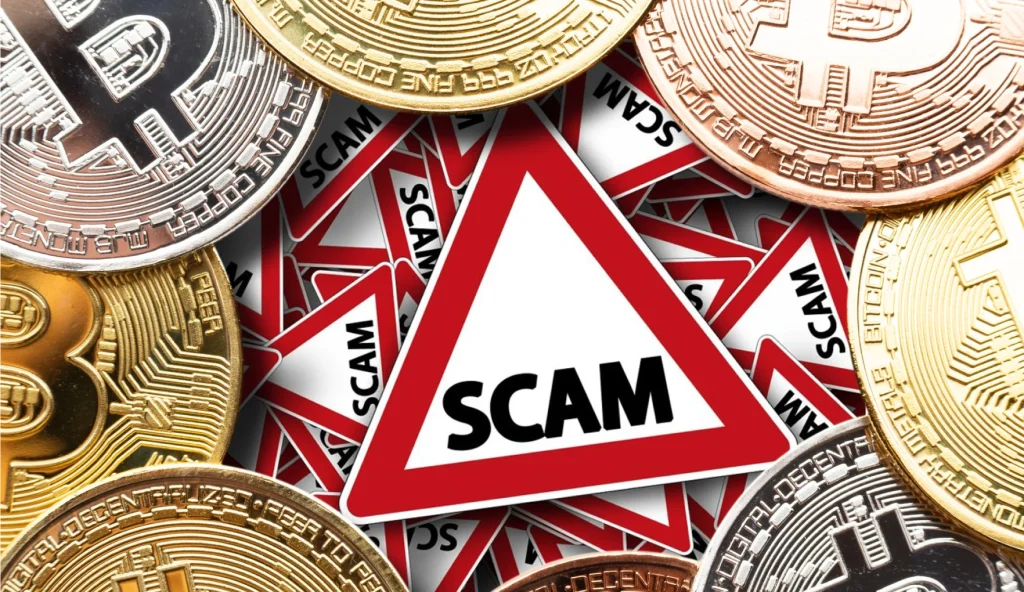Airdrop farming in the crypto world is an attractive notion that extends your digital asset portfolio. In reality, however, quite a good number of airdrops have become frauds. This article will take you through the crypto airdrop scams, landscape, and detail the different types, how to identify them, and the difference between genuine and fake airdrop scams.
Airdrop scam refers to fraudsters luring people through free cryptocurrency tokens. Still, they have negative intentions. Fraudsters use the trust and popularity earned by real airdrops since they are common strategies for blockchain projects to distribute tokens, increase their visibility, or reward loyal users.
The participants in a valid airdrop will be called upon to perform the following activities: follow a social media account, join their community, or hold a specific token to get some airdropped tokens.
On the other hand, fraud dwells on methods that scams use to deceive innocent individuals into releasing their personal data, private keys, or even cash.
Fraudsters will take advantage of people’s eagerness for free tokens. These are used to dupe people into revealing personal information or giving wallet access. However complicated all these scams may be, their main goal is fraudulent-participant deception.
Kinds of Airdrop Scams
1. Telegram Airdrop
Some genuine airdrops on Telegram bring in thousands of dollars immediately after listing on exchanges, while most of these airdrops are scams that dupe participants into sharing their tokens. Professional airdrop hunters would testify that authentic and rewarding projects on Telegram are outnumbered by scam projects, especially if one has more than a year’s experience in the game.
We will need to understand why fake Telegram airdrop scams are being created in the first place before we can determine if a project is legitimate. This insight will also show us the possible repercussions of engaging with them.
2. Advance Payment Airdrop
Scam airdrops are run by creating a sham campaign that looks like a real airdrop. The fraudsters might use various fabricated social media accounts, websites, and marketing materials to attract participants.
Individuals targeted by scams are often instructed to transfer a small amount of cryptocurrency for wallet verification or to settle transaction fees. As soon as the payment is processed, the fraudsters disappear, and the victim is left empty-handed, without the tokens they expected.
3. Malware Airdrop
Victims of this scam are tricked into downloading the malware, which may come disguised as an airdrop application or wallet. The malware can compromise the private keys, record keystrokes, or even take control of the device for serious financial loss.
4. Bounty Airdrops
This method involves completing various tasks to earn tokens, such as following social media accounts, joining online communities, or writing articles. Crypto projects use these activities to increase visibility and expand their user base.
5. Holder Airdrops
This type of airdrop rewards current holders of a specific cryptocurrency. Tokens are allocated according to the quantity or duration for which a user has held the specified token.
6. Hard Fork Airdrops
These happen when a hard fork results in a new cryptocurrency, and developers distribute this new coin to holders of the original coin on the previous chain.
7. Snapshot Airdrops
Tokens are allocated based on a “snapshot” of your wallet holdings taken at a particular moment.
All About Fake Telegram Airdrop Scam
A critical way to differentiate a fake Telegram airdrop project from a real one is when it takes many referrers before you can cash out or withdraw the “free token.” These people are just looking for ways to bring in more people to their scam project to seek a large number of participants.
Next time you see a Telegram airdrop asking for a certain amount of referrers before a withdrawal can be made, it would be wise to have a little doubt about that particular airdrop project.
A fake Telegram airdrop will ask you for a certain amount of fee (Crypto) before you can get your ‘free token’.
This is one of the tell-tale signs that a particular Telegram airdrop is totally fake. An airdrop is meant to be free. It doesn’t make sense for you to pay a fee to get something that is meant to be free.
The people who usually organize these fake Telegram airdrops are scammers. They plan on preying on unsuspecting, uninformed, and naive airdrop hunters.
A fake Telegram airdrop is not usually linked to an official channel or website.
Legit airdrops usually have official websites, and some even go further to have verified social media accounts. When a particular Telegram airdrop promises a free token, and it is not linked to any official website or social media account(s), then it is probably fake.
A fake Telegram airdrop group may have a post that contains some Grammatical and spelling errors.
Amateurs usually run most fake Telegram airdrop groups. These people do not take the time to correct any grammatical or spelling errors in their posts.
Another reason you should look out for grammatical errors is that some of these projects are run by people based in parts of the world where English may not be the native language.
A Fake Telegram project usually promises large amounts of money.
Like it or not, scammers are extremely smart people; they know that a particular airdrop project will entice more people if they promise a large amount of money in Crypto.
Telegram airdrop scammers usually shoot themselves in the foot with this strategy because the price of an unlisted coin can not be calculated until it has been officially listed on an exchange platform.
The next time you see a Telegram airdrop project that promises a substantial monetary value, you should be suspicious of such a project.
In conclusion, you should be cautious when a project shows any of the above signs; however, this is not to say there are no real Telegram airdrops, but an airdrop hunter should be careful and knowledgeable about any particular Telegram airdrop before participating in them.
How to Identify Genuine vs Fake Airdrops?
It is often difficult to identify and distinguish between real and fake airdrops, but there are many telltale signs to watch out for. Here are simple ways to help you sift through them:
- Most genuine airdrops come through official channels announcing the crypto project.
- They may ask users to perform some actions: subscribe to a newsletter, like some social media page, or participate in the network. Keep in mind that crypto airdrop scams may be initiated by something like these as mentioned above.
- Actual airdrops never ask for private keys, recovery phrases, or confidential information.
- In contrast, fake airdrops frequently promise high returns with minimal effort and can use high-pressure strategies to push you into acting swiftly. Remember the adage: if it seems too good to be true, it probably is. They may also ask you to transfer a certain amount of cryptocurrency as a ‘verification’ or gas fee to claim your airdropped tokens.
FAQs
How is money made on crypto airdrop?
A smart strategy for earning money is to hold onto some of the free tokens you receive from crypto airdrops, as they don't guarantee immediate profits. By securing these tokens without any investment, you can benefit from potential price increases in the future, assuming the project behind them succeeds.
How do we cash out airdrops?
After receiving your airdrop tokens, locate an exchange that allows you to withdraw them. If the airdrop involves an ERC20 token, you should be able to withdraw it from any exchange that operates on the Ethereum network.
How can we stay protected from airdrop scams?
Follow the steps below to stay protected from airdrop scams:
1. Do not disclose your seed phrase or recovery phrase to anyone. These phrases serve as the master keys to your wallet.
2. Be cautious of unexpected airdrops. Genuine projects usually communicate airdrops through their official channels.
3. Confirm the legitimacy of airdrops. Always cross-verify details with the official websites or social media of the projects.
4. Utilize blockchain explorers to check token contracts and transactions. This ensures that you are dealing with authentic tokens and contracts.
5. Exercise caution with token approvals. Only provide the essential permissions to smart contracts.
How can someone stay informed about airdrop frauds and other related security threats?
To keep yourself informed about airdrop scams and other security risks, consider these strategies:
- Follow trustworthy sources that specialize in blockchain security news.
- Keep abreast of the newest scams and learn about effective security practices.
- Join online forums and communities to share your thoughts and ask for guidance from fellow members.
By staying alert and educated, you can greatly minimize your chances of becoming a target for airdrop scams and other security threats in the blockchain realm.
Always prioritize the protection of your wallet addresses and private keys to ensure the safety of your digital assets.



